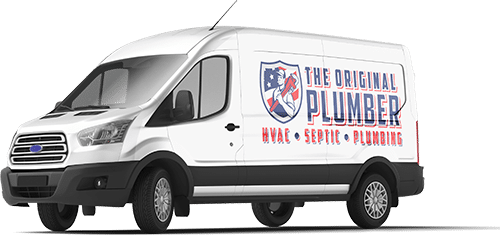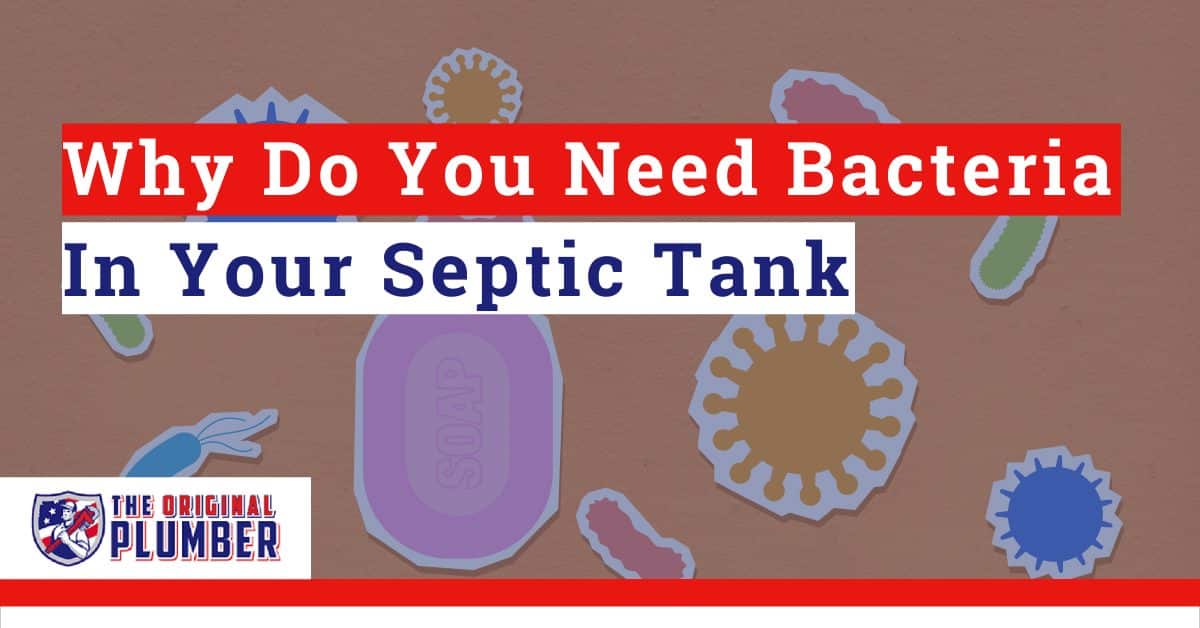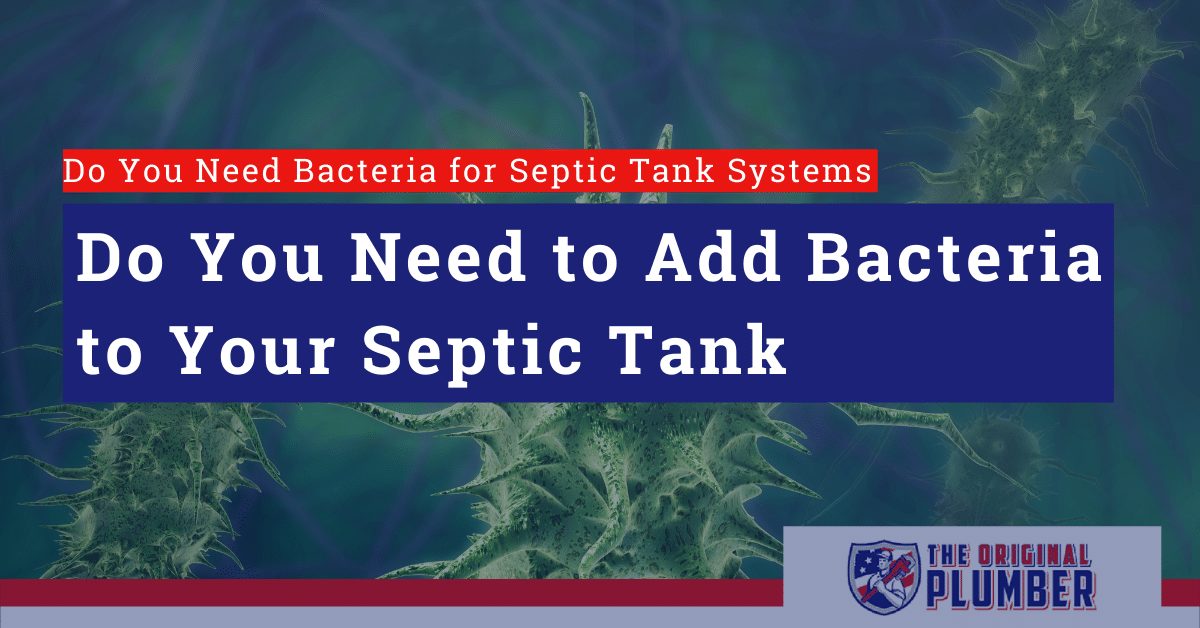If you’re new to a home with a septic tank, you might not know about the bacteria living in your septic system and why you need them there. You also might not know you need that bacteria for septic tank health as a new tank owner. Keep reading to learn about the different kinds of bacteria and enzymes in your septic systems and why you need them.
Why Do You Need Bacteria in Your Septic Tank?
Anaerobic bacteria are what’s responsible for breaking down the organic waste solids in your septic tank and keeping them from building up within your tank. These anaerobic bacteria don’t require oxygen to survive in your tank. Since there’s less oxygen inside a septic tank, anaerobic bacteria are mostly responsible for breaking down waste.
There are also aerobic bacteria that require more oxygen to survive, require organic waste as a food source, and break down solid waste. This type of aerobic bacteria often lives in the leach field and treats the waste before the liquids seep into the soil.
Both of these kinds of bacteria found in your septic tank are important to the health of septic systems. Their main job is to break solids down into liquids so that the liquid can drain out of the septic tank.
In addition to the aerobic and anaerobic bacteria, septic tanks also have powerful enzymes working inside of them. The enzymes come from the bacteria in your tank and their job is to help the bacteria break down the organic waste in your tank.
Here are four enzymes commonly found in septic tanks:
- Cellulase – this enzyme works to break down toilet paper and some solid food
- Lipase – this type of enzyme breaks down fats in your tank
- Protease – this is an enzyme that breaks down organic matter like protein
- Amylase – this enzyme is responsible for breaking down starches
If too much solid waste settles in the bottom of your tank, it can cause clogs when the liquids are trying to leave the tank and go into the drain field. Your septic system relies on these bacteria and enzymes to treat human waste.
Without these naturally occurring beneficial bacteria and enzymes in your septic tank, the solids won’t be properly broken down and you won’t have a healthy septic system. As they float to the top of the tank over time, those pieces of waste can cause clogs as liquid leaves the tank through the drain pipes.
How Do You Care For the Bacteria in Your Septic Tank?
The naturally occurring bacteria and enzymes in septic tanks need solids to survive. You can find a variety of septic tank treatments both in stores and online. Many septic systems don’t need a septic tank treatment if you have your tank pumped and maintenance is done on a regular basis.
Just like there are things to put into your septic tank to help bacteria grow, there are also toxic substances you should not put down your drains because they can hurt the septic tank bacteria:
- Antibacterial soaps
- Bleach
- Antibiotics
- Harmful chemicals
- Too much toilet paper
- Other chemical additives
Carefully choose the products you use to clean your home as well as what you’re using to do laundry. All of those things go down the drain and wind up in your tank.
For example, instead of using chemicals to clean or bleach to whiten clothes, consider vinegar and baking soda because they won’t be as harmful to the septic tank bacteria.
Also, be mindful of the products you’re purchasing that will eventually go down your drains. Your toilet paper should be approved for septic systems and should be used minimally. Even when you have the right products, you can’t overwhelm your septic system by flushing large amounts of waste without upsetting the balance in your tank.
Do You Need to Add Bacteria to Your Septic Tank?
Most people don’t need to add any additional bacteria or septic tank treatments to their septic systems. By limiting the number of chemicals and harmful products, your septic tank should have the right amount of bacteria to properly function.
When you add in additional bacteria and other septic tank additives, you could also be causing more harm to your septic system. Too many anaerobic bacteria can reduce the amount of oxygen available and throw off the balance of your system. The bacteria can’t survive in these conditions, so the waste in your septic tank will build up and cause problems.
Also, not all septic tank additives available in the market go through regulation, testings, and certifications. Additives in the market do not achieve the same results, some may cause more harm than good to your septic system.
If you’re not sure if you need bacteria in your septic tank, contact a professional like The Original Plumber & Septic. We can come to your home and do an inspection of your septic system.
During that inspection, the technician will look at all the parts of your septic system and explain how your septic tank works if you’re a new septic system owner. We’ll check the levels of sludge and scum in your tank, as well as check the pipes and drain field to make sure everything is working properly and find answers if something’s off.
Adding additional bacteria does not take the place of having regular maintenance done on your septic system. You still need to have inspections, cleanings, and tank pumping done as recommended by your plumbing professional.
What Should I Add To My Septic Tank?
Before you start putting things down your drain, garbage disposal or flushing them down your toilet, it’s important to talk to a professional septic tank technician.
Yeast
If you feel like you need to add something to your septic tank to help break down the solid waste, consider adding ¼ – ½ cup of yeast on a monthly basis after speaking with a septic system technician.
Yeast will help loosen the sludge layer in your tank and help break down other solid waste as part of the digestion process. Simply drop the dry yeast into your toilet and flush it down the drain.
This should be added to a toilet on the first floor of your home so it’s closer to the septic tank. You want to do it at a time when you won’t be putting other liquid or waste down your drains for a while afterward. This could dilute the yeast you’re adding and make it less effective so choose a time when you won’t be showering, running the dishwasher, or doing laundry.
Rotten Tomatoes
Another organic way to produce enzymes and grow the bacteria population in your septic tank is to put rotten tomatoes down your garbage disposal. Adding three to four rotten tomatoes that have been halved down your garbage disposal can help the overall health of your septic system.
For this method, be sure that you run a lot of water down the drain to make sure the tomatoes get washed down into the tank and not stuck in the drain pipes.
Hydrogen Peroxide
You may see suggestions to add hydrogen peroxide to your septic system. While this is something that was previously recommended, it’s been found to cause damage to your drain field and can upset the soil content.
How Do I Know if I Have a Problem with My Septic Tank?
It might seem like a more affordable solution to use septic tank additives like Rid X to help maintain your septic tank, but if you use the wrong kind of septic tank treatment for your septic tank or size, you can wind up costing yourself a lot more money if you cause damage to your septic system.
There are several things to watch out for when dealing with your septic tank system that will be signs something is wrong:
- Unpleasant smells
- Solid waste backups
- Pooling water in your yard where the septic tank and drain field are
Many of these things can be caught during normal septic tank maintenance. If you think you have a problem with your septic system between regularly scheduled maintenance, reach out to your septic technician right away so they can help before things get worse.
You may need to have your septic tank cleaned, pumped, or another repair made to your system.
Atlanta’s Trusted Plumbing Professionals
Call The Original Plumber & Septic today for a free consultation. We’re available 7 days a week to help with all of your septic and plumbing needs for your home or business in the Atlanta area. One of our friendly and professional technicians will come to your home to do an inspection to help you to determine the current state of your septic system. We can also help when an emergency arises.






